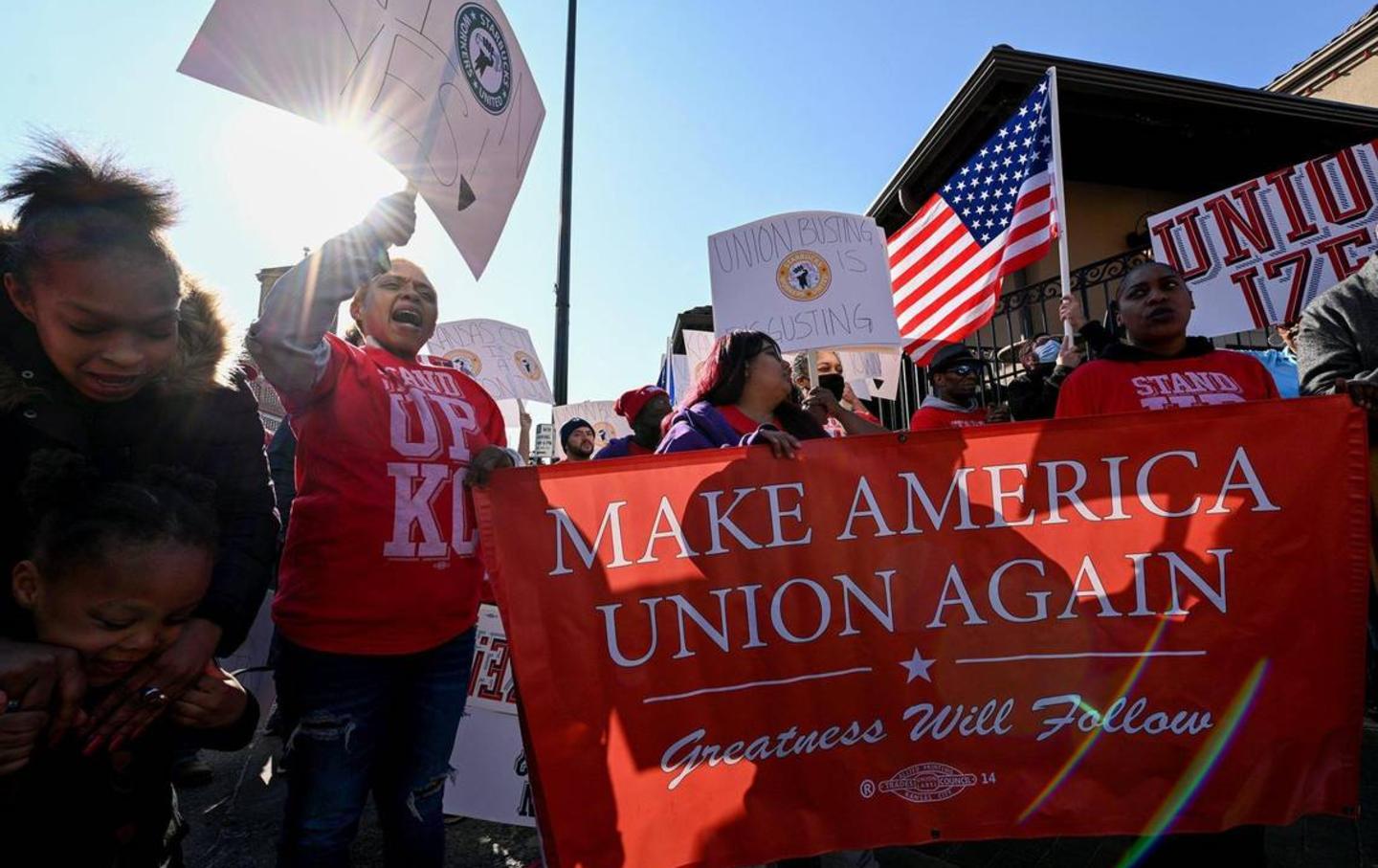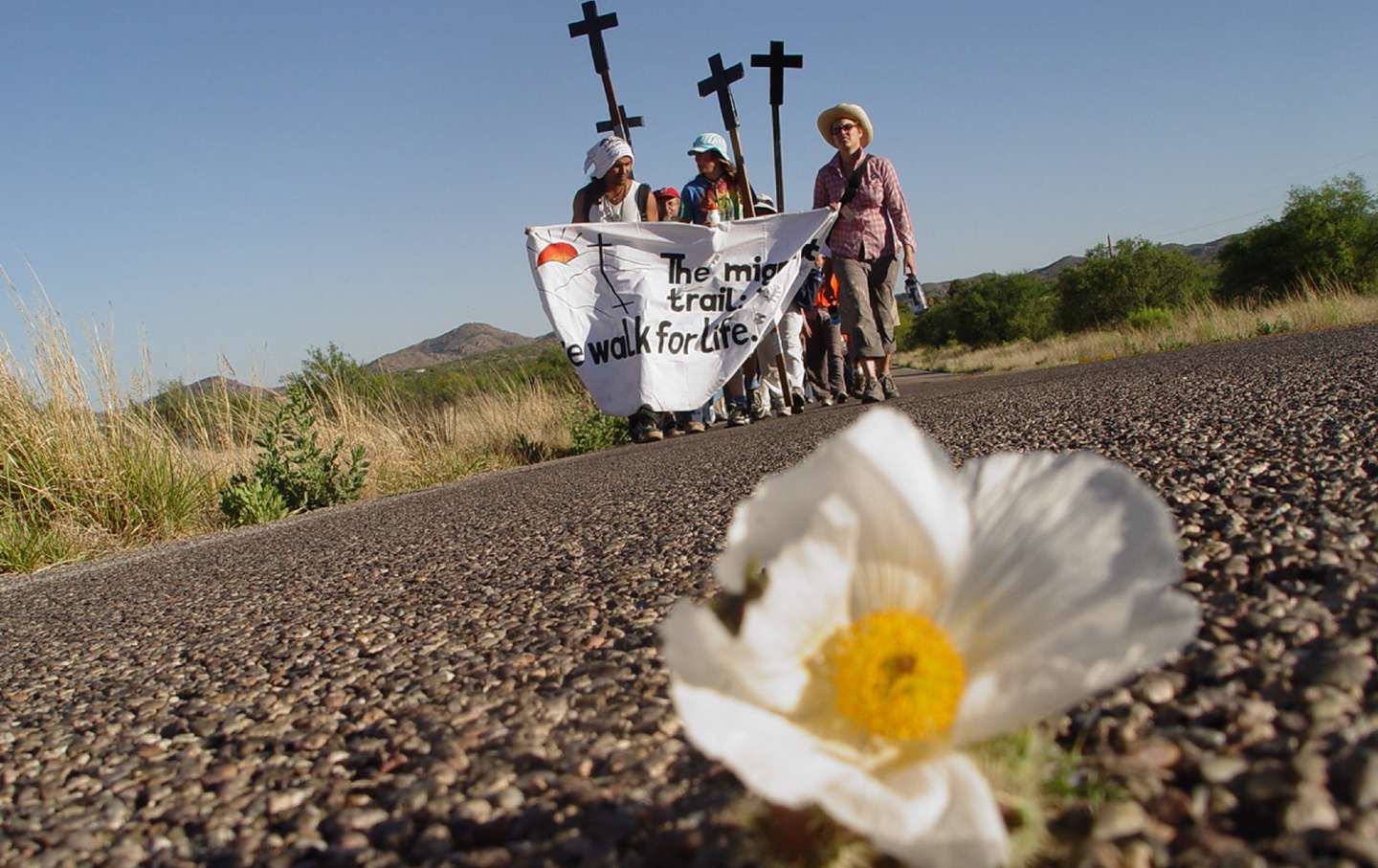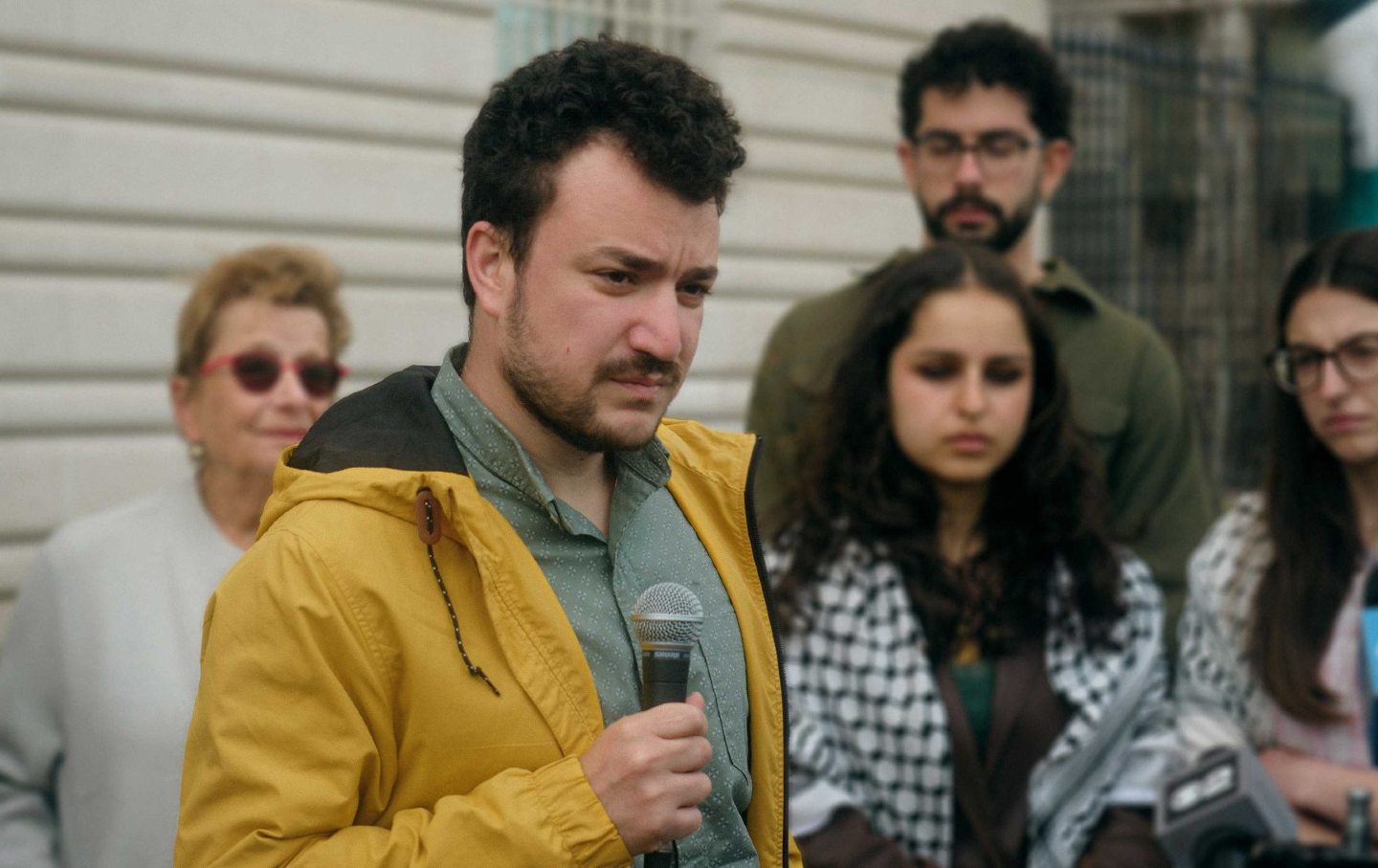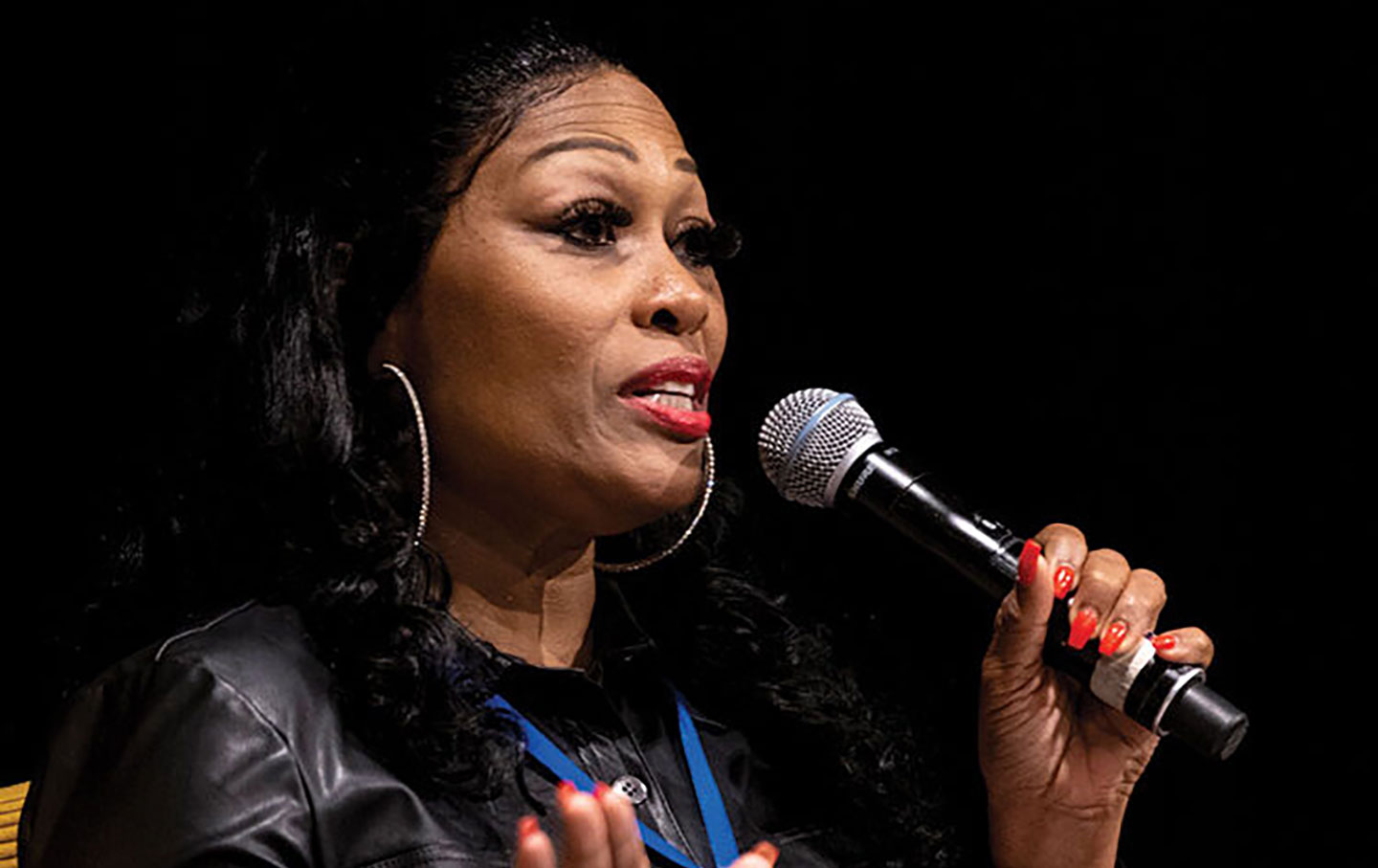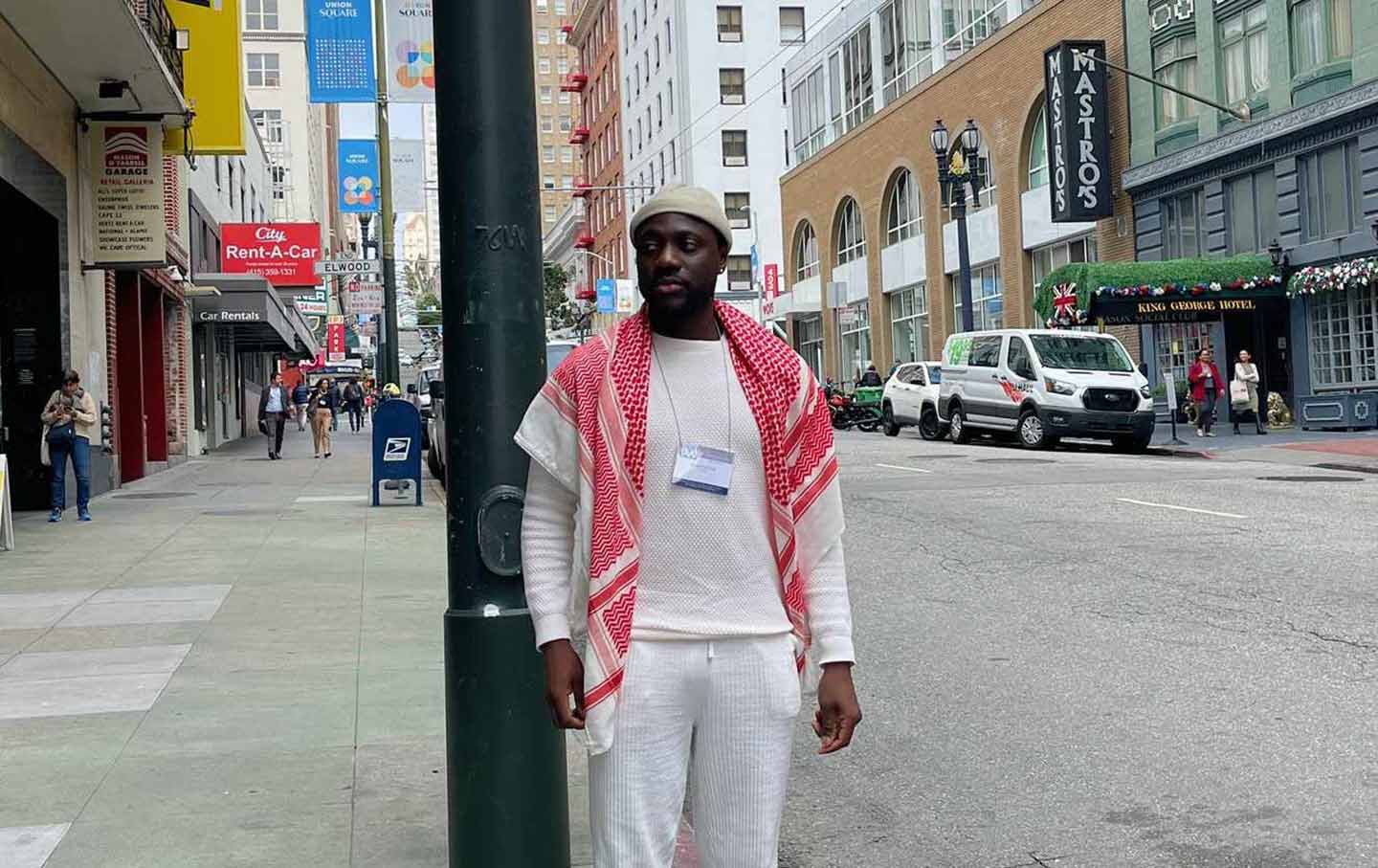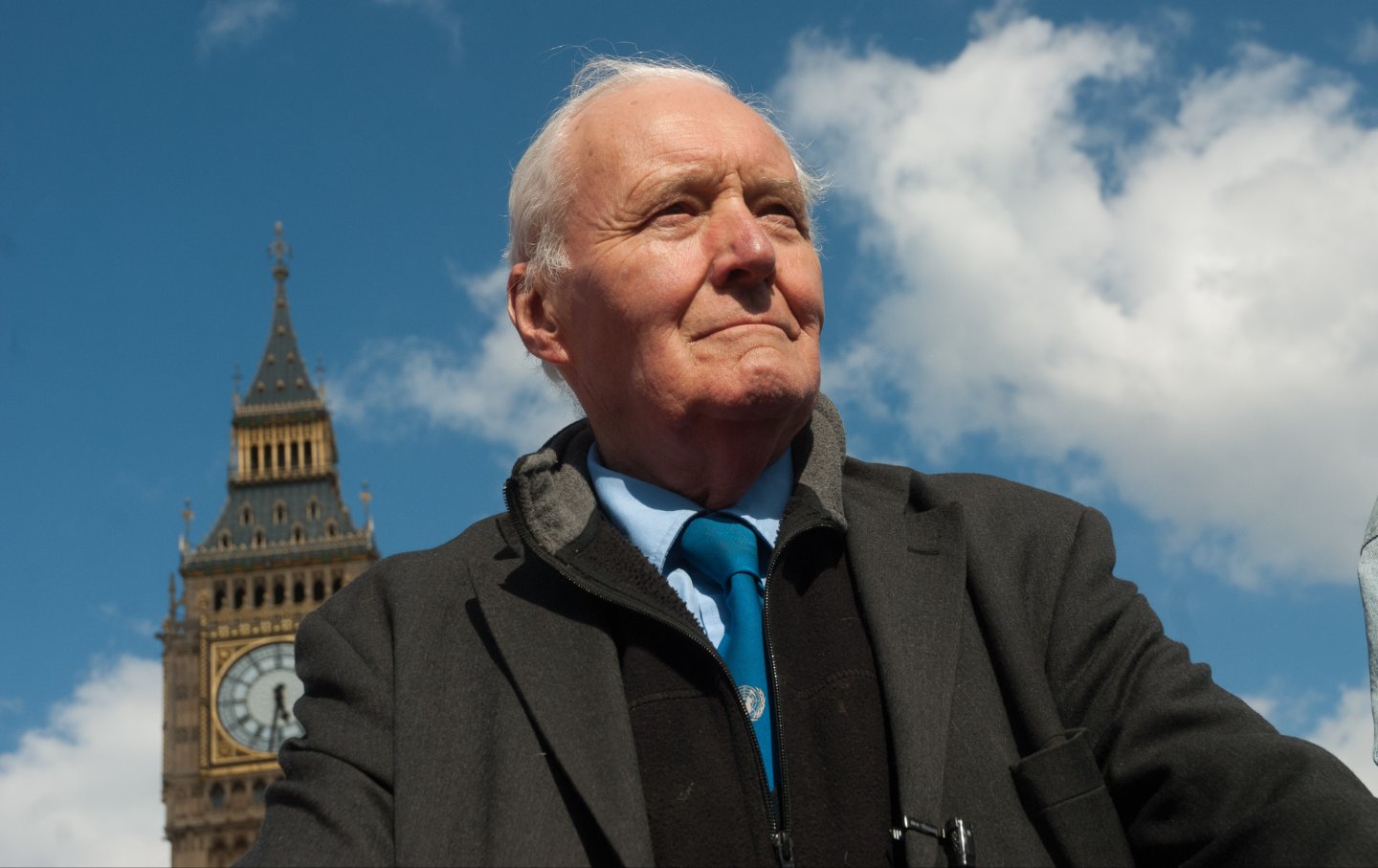Why These Teachers Unions Are Demanding a Cease-Fire
A flurry of state and local teachers unions have passed cease-fire resolutions, but few national unions have followed.
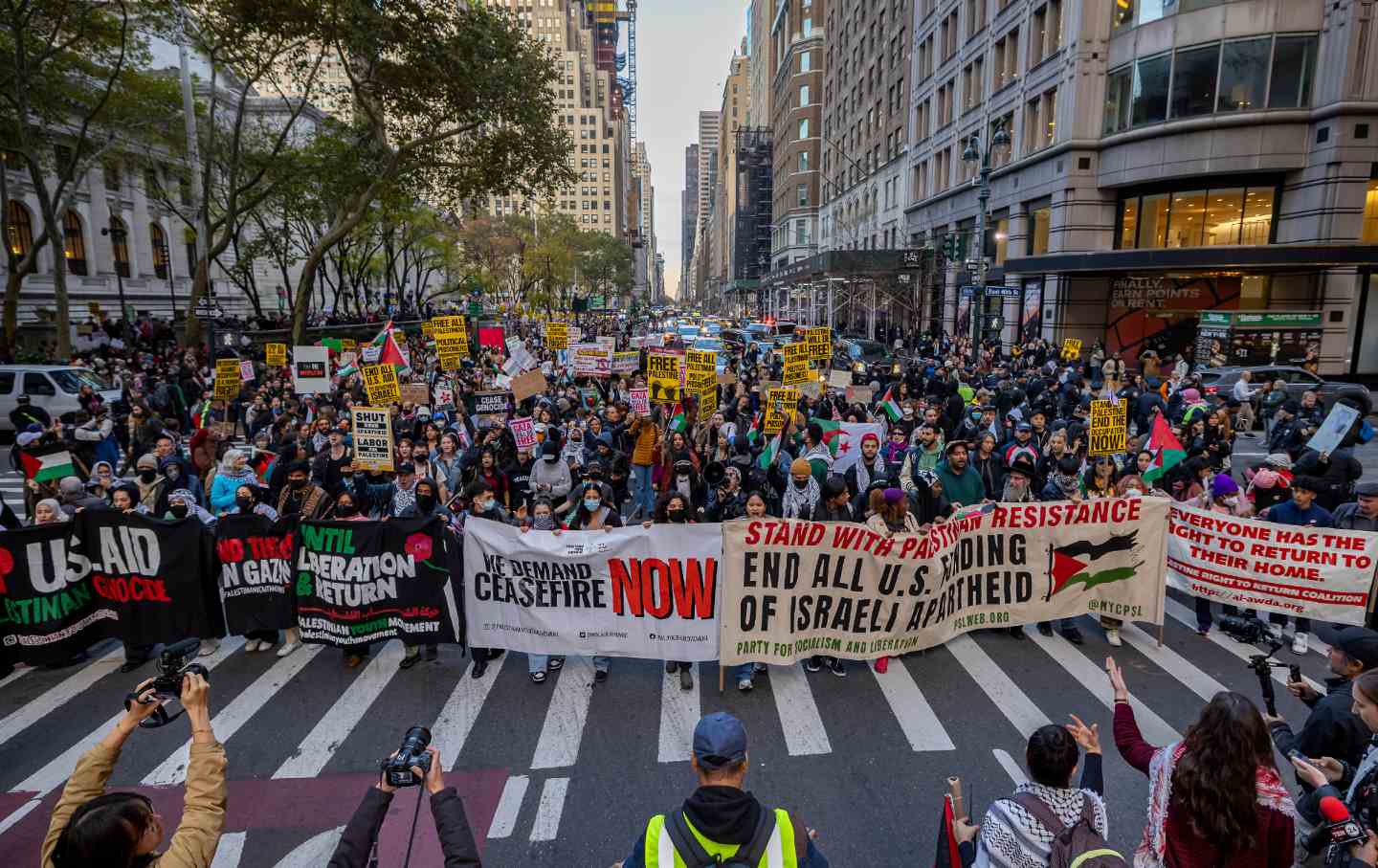
Students, teachers, and pro-Palestinian allies march through Midtown Manhattan during a Student Walkout protest calling for a cease-fire between Israel and Hamas on November 9, 2023 in New York City.
(Michael Nigro / Sipa)When asked why her union voted to call for a cease-fire in Gaza, Marcia Howard, a teacher of 24 years, turned to an education metaphor. “It’s an object lesson for the nation and for other laborers,” she said over the phone, ahead of classes at a Minneapolis area high school, where she teaches language and literature to 11th graders. “The challenge has been for the entire working class to move the nation to do the right thing.”
Howard is the acting president of the teachers chapter of the Minneapolis Federation of Teachers (MFT) Local 59. On October 25, her chapter voted at a general membership meeting to pass a resolution urging an immediate cease-fire, rejecting violence against civilians on all sides and condemning “the role our government plays in supporting the system of Israeli occupation and apartheid, which lies at the root of the Palestinian Israeli conflict.”
The resolution also calls upon the Minnesota State Legislature to repeal laws opposing the boycott, divestment, and sanctions movement, because such legislation “stifles free speech and discriminates against Palestinian refugees, their families, and their supporters.” (The union of 3,700 members also includes an education support professional chapter, which passed its own cease-fire resolution on November 2.)
The statement is part of a flurry of cease-fire resolutions from US locals, state and regional unions, and labor councils, among them a number of teachers unions, including the Chicago Teachers Union (CTU), the Massachusetts Teachers Association, the American Federation of Teachers–Oregon, and the San Antonio Alliance of Teachers and Support Personnel. Teachers are also participating in protests. “Our members are diverse and dynamic, and they are already out there. The moment the resolution passed, it was read at a rally to tears, because members were already in the streets,” said Howard.
Israel’s bombing, siege, and ground invasion of Gaza have been met with increasingly urgent protests across the United States, whose government is supplying and politically backing the offensive. In just over a month, Israel has killed more than 11,000 Palestinians—or one out of every 200 people in Gaza—including at least 4,609 children, according to Gaza’s Health Ministry. (Hamas-led fighters killed roughly 1,200 Israelis in a surprise attack on October 7.) Concerns are mounting that Israel’s military actions are aimed at depopulating Gaza. “Israel is seeking to justify what would amount to ethnic cleansing,” Francesca Albanese, the UN special rapporteur on the situation of human rights in the Palestinian Territory, said in an October 14 statement.
Humanitarian organizations, human rights groups, the head of the World Health Organization, progressive Jewish organizations, and Palestinian civil society are demanding an immediate cease-fire.
The only national unions in the US to explicitly echo this call are the United Electrical, Radio and Machine Workers of America (UE), and the leadership of the American Postal Workers Union, though the president of the International Union of Painters and Allied Trades did call for “an immediate end to hostilities,” and the leadership of the National Writers Union condemned the “actions of the Israeli military.” The AFL-CIO has so far not publicly supported a cease-fire, even as some of its affiliates take a different tack. The American Federation of Teachers and National Education Association (of which first lady Dr. Jill Biden is a longtime member) have also declined to support a cease-fire on the national level.
“It’s important to talk about US complicity, the role of our tax money, and the role of politicians who rank-and-file members have gone door to door to elect in this massacre, said Jeff Schuhrke, an assistant professor of labor studies at SUNY Empire State University in New York City, who has written a book about the foreign policy of the AFL-CIO, which will come out next year. “This needs to be out in the open and discussed.”
For some teachers, who have been inundated for weeks with images of children being pulled from rubble, this urgency of a cease-fire resonates on a personal level. “The news that is coming out is horrific,” Howard said. “We mourn the innocent lives in Israel and occupied Palestine, and a cease-fire is the only reasonable thing to be asking for right now.”
These pleas, while popular across the US, have yet to break into the mainstream of Congress. Only 30 out of 435 members of the US House of Representatives have called for a cease-fire, and just one senator, Dick Durbin, made an ambiguous statement seemingly in support of a cease-fire, but he has not signed on to any legislation to this effect.
The Biden administration and its supporters have, instead, used the language of a “humanitarian pause,” but activists and some humanitarian groups criticize this phrase as ill-defined, insufficient, and not backed by real political muscle. “It makes no sense to briefly pause the war to allow in limited humanitarian aid, only to then resume the intense bombardment that is driving massive humanitarian needs. An immediate cease-fire is the only humane option,” said Avril Benoît, executive director of the US branch of Médecins Sans Frontières, a humanitarian medical organization, in a recent statement.
The Biden administration brands itself as pro-labor, and a handful of national labor leaders have a direct line to the White House. Some in the US labor movement hope that rising pressure from this sector could help convince Biden to reverse course from unqualified support for Israel’s actions and significantly increased military aid.
“As a union of educators dedicated to empowering the next generation, we are deeply concerned by the loss of civilian life and indiscriminate bombing throughout Gaza, where half the Palestinians living there are children,” Jackson Potter, the vice president of the Chicago Teachers Union, which has around 30,000 members, declared at a November 13 demonstration in Chicago, where more than 1,000 Jews and allies disrupted the Ogilvie Transportation Center and closed down the Israeli consulate to demand a cease-fire.
He was speaking with institutional weight behind him: The CTU passed a resolution on November 1 to sign on to a statement, organized by the UE and the United Food and Commercial Workers International Union 3000, which “call[s] on President Joe Biden and Congress to push for an immediate ceasefire and end to the siege of Gaza.” The statement also says that “the basic rights of people must be restored,” including allowing “water, fuel, food, and other humanitarian aid” into Gaza. And it goes on to state, “Hamas and Israel must adhere to standards of international law and Geneva Convention rules of warfare concerning the welfare and security of civilians.”
Teachers unions that operate democratically must vote on statements, and not all have voted in favor of a cease-fire. Successful resolutions are often preceded by internal debates and sometimes difficult discussions with colleagues. Potter has been a teacher in Chicago Public Schools for 20 years, most recently as a social studies teacher at the high school level, though he has been on relief for a year and a half while serving as vice president. He said over the phone that maintaining decorum and setting ground rules for debate at the union’s monthly meetings “helped a lot.”
Potter said CTU president Stacy Davis Gates, who chairs the union’s monthly meetings, “did an expert job at pushing people not to fall into their tribal selves…and not use it to make definitive judgments about people overall and what they stand for and believe in.”
Popular
“swipe left below to view more authors”Swipe →The resolution passed with roughly 95 percent in favor at CTU’s house of delegates, the union’s most powerful body of elected representatives, which has around 750 members. Among those who objected, some believed the language was not strong enough in its condemnation of Israel, said Potter.
The union also passed a resolution to provide “social emotional supports for members and students during world conflicts,” which includes a commitment to “share and distribute resources to help students and school communities process the impact and trauma of violence at home and abroad.” According to Potter, the union is talking about going broad with the resolution’s mandate for education and teach-ins to include discussions about the displacement and mistreatment of migrants and refugees.
“Political education is necessary moving forward,” he said, “to give people opportunities to share their personal experiences and perspectives, hear and share with others, to enhance understanding and diminish divisions that can easily erupt and cause irreparable harm within a democratic organization.”
The MFT 59-teacher chapter resolution, too, passed by a large margin at a general membership meeting. “It was brought to the floor, spoken to, and passed after a vote,” said Howard. “There were people who voted no and abstained, but we followed parliament procedures and it passed overwhelmingly.”
“There are people who feel tender-hearted about anything that suggests that, frankly, Israel could be in the wrong,” said Howard. “But if you look at the resolution as it stands, the language is clear, and it resonated with enough members at our meeting that it passed. It doesn’t mean we are dismissing the concerns of other members: Those are conversations that can be had, and that’s why we meet as a membership on a regular basis. Islamophobia and antisemitism are real and present and cannot be easily dismissed.”
Howard’s own leadership in her community was forged in a deeply embattled movement. “After George Floyd was killed 263 steps from my house, his death was filmed by a former student of mine, and I wound up being in the streets and part of an occupation against systemic racism,” she said, referring to an ongoing protest in which community members maintain a presence at the intersection where Floyd was killed, known as George Floyd Square. “I stayed outside, and my union came to me. And there were objections from all corners of society saying they were not supposed to stand with Black Lives Matter or a ragtag group of occupiers. Yet they stood beside me and modeled what it is like to use collective action for good and for change.”
“What I’m hoping with our resolution,” she added, “with our words on a page that signify our sentiment when it comes to war, what I’m hoping it does is allow labor, whether autoworkers or actors or teachers or baristas, to understand we are the backbone of the United States. And our voice matters.”
Hold the powerful to account by supporting The Nation
The chaos and cruelty of the Trump administration reaches new lows each week.
Trump’s catastrophic “Liberation Day” has wreaked havoc on the world economy and set up yet another constitutional crisis at home. Plainclothes officers continue to abduct university students off the streets. So-called “enemy aliens” are flown abroad to a mega prison against the orders of the courts. And Signalgate promises to be the first of many incompetence scandals that expose the brutal violence at the core of the American empire.
At a time when elite universities, powerful law firms, and influential media outlets are capitulating to Trump’s intimidation, The Nation is more determined than ever before to hold the powerful to account.
In just the last month, we’ve published reporting on how Trump outsources his mass deportation agenda to other countries, exposed the administration’s appeal to obscure laws to carry out its repressive agenda, and amplified the voices of brave student activists targeted by universities.
We also continue to tell the stories of those who fight back against Trump and Musk, whether on the streets in growing protest movements, in town halls across the country, or in critical state elections—like Wisconsin’s recent state Supreme Court race—that provide a model for resisting Trumpism and prove that Musk can’t buy our democracy.
This is the journalism that matters in 2025. But we can’t do this without you. As a reader-supported publication, we rely on the support of generous donors. Please, help make our essential independent journalism possible with a donation today.
In solidarity,
The Editors
The Nation

